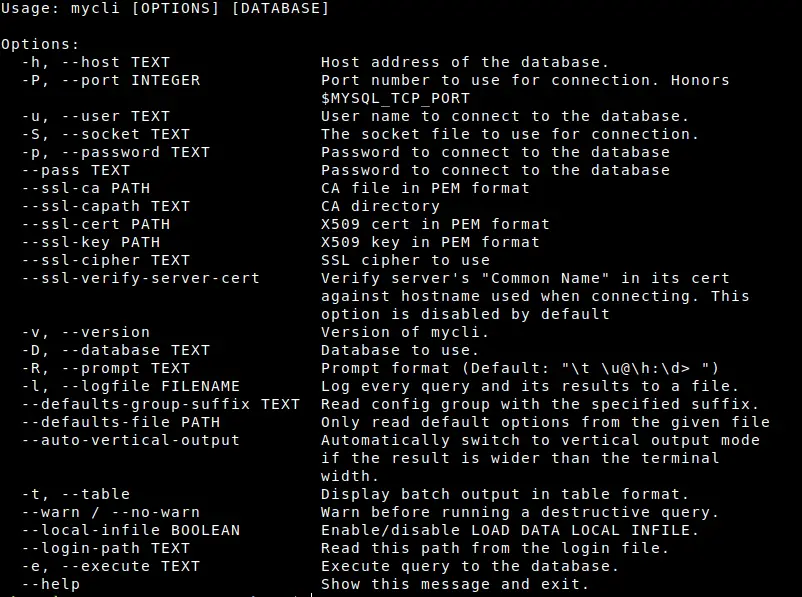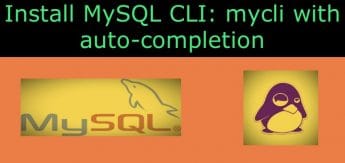In this tutorial, we will learn how to install MySQL CLI on Linux. We will discuss process to install mycli on Ubuntu, CentOS, RHEL & Fedora. mycli is a command line tool for MySQL, MariaDB as well as Percona & supports the following features,
- Auto-completion, & Case sensitive completion, as soon we start typing commands this will come into play,
- Syntax highlighting,
- Support for multi-line queries,
- Support for SSL connections,
- Saving of favorite queries,
- Pretty prints tabular data,
- Support for various themes.
- Works well with Unicode input/output.
We can also store every query & its result in a file but this functionality is disabled by default. We can activate this feature by editing the configuration file, which is located at ~/.myclirc. All the log files can be found at ~/.mycli.log.
Recommended Read: Installing & Configuring MariaDB on RHEL/CentOS
Also Read: How to install or upgrade PHP version to PHP 7
To install MySQL CLI i.e. mycli on Ubuntu & other Linux distributions, we would need a system that runs python 2.7+ or 3.4+. So make sure that your Linux system has python installed. To install it, run the following command (based on Linux distribution you are using),
Ubuntu
$ sudo apt-get install python
CentOS/RHEL
$ yum install python
Also, check this tutorial to install Python 3.6 on CentOS/RHEL .
Fedora
$ dnf install python
Install MySQL CLI- mycli
For Ubuntu & Fedora, mycli has packages available with the default system package manager repositories & we can use the following commands to install the same of respective systems,
Ubuntu
$ sudo apt-get update
$ sudo apt-get install mycli
Fedora
$ sudo dnf install mycli
This will install MySQL cli i.e. mycli on our systems. But for CentOS & RedHat no rpm packages are available & we need to use pip command to install the same on our system. Using pip, we can install mycli on either Ubuntu, Fedora or CentOS/RHEL.
If you don't have pip installed on your system, install it using the following tutorial (https://linuxtechlab.com/install-python-pip-python-package-manager/).
Now when we have pip ready, all we need to do is to execute the following command from the terminal,
$ sudo pip install mycli
or we can also use,
$ sudo easy_install mycli
Once installed, we can check the installed version with the following command,
$ mycli -v
& to get the lists of all the commands that can be used with mycli, execute the following command,
$ mycli –help
Or you can also first connect to the database using mycli command,
$ mycli -h localhost -u root
& then type ‘help ’ to get the list of all commands,
mycli> help

This is it for this tutorial on how to install MySQL CLI aka mycli on a Linux system. Please feel free to send in any questions or queries using the comment box below.
